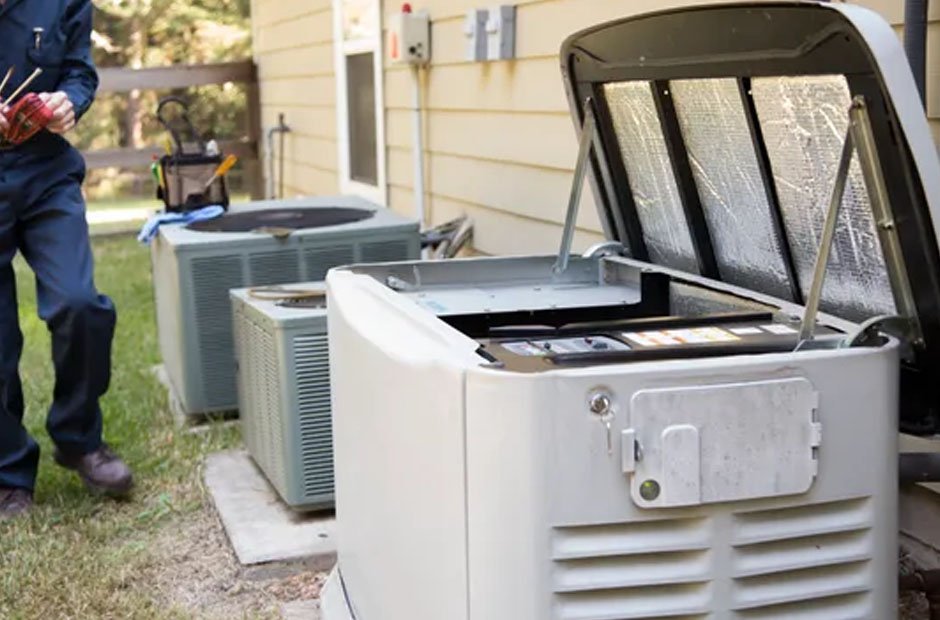Key Takeaways:
- Recognizing when your home needs a backup power upgrade protects your comfort and safety during outages.
- Warning signs include frequent power disturbances, growing electrical demands, and outdated equipment.
- Upgrading provides peace of mind, increased energy efficiency, and potential home value benefits.
- Regular and proactive assessments minimize risks and maximize preparedness for future power interruptions.
Recognizing Frequent Power Interruptions
If power outages happen more often, your home’s current system may not meet demands. Grid instability, aging local infrastructure, or severe weather can increase your chances of sitting in the dark at inconvenient times. Instances of flickering lights, random resets of digital clocks, or complete outages more than once or twice yearly are all signals that your home could benefit from backup power for home upgrade. Being proactive at this stage prevents headaches and costly emergencies later. A reliable backup power system can keep essential appliances running, protect sensitive electronics, and offer peace of mind during extended outages. It’s an investment in comfort, safety, and long-term property resilience.
Rising Household Power Demands
Consider how your lifestyle has changed in recent years. Perhaps your family has grown, or you have added features like a home office, an electric vehicle, or an upgraded HVAC system. Each new appliance or gadget increases the strain on your backup energy needs. Older systems designed for basic loads may not have the power to keep everything running when you need it most. Growth in home power consumption is a strong reason to explore advanced backup options that offer higher output, extended runtime, or integration with modern technology, ensuring no device or critical system is left unsupported during an outage.
Aging Generators and Backup Systems
Like all appliances, backup generators and battery systems wear down over time. Routine maintenance extends their lifespan, but eventually, age will reduce their reliability and efficiency. Systems older than 10 to 15 years, especially those subjected to heavy use or minimal servicing, can develop performance issues or fail at the worst possible moment. According to the U.S. Department of Energy, planning timely replacements or upgrades ensures optimal safety and continuous power supply when it counts. Don’t wait for a critical failure to consider updating your equipment.
Enhanced Family Health Needs
Households supporting elderly family members, infants, or anyone with medical devices like oxygen concentrators or refrigerated medicines have zero margin for extended outages. Even short-term electrical lapses can present serious health risks in these circumstances. If your family’s health requirements have increased, upgrading your backup system adds invaluable protection. Reliable backup ensures that vital equipment functions continuously, providing comfort and potentially life-saving peace of mind during power interruptions.
Concerns About Food and Medication Safety
Modern households often store hundreds of dollars’ worth of refrigerated or frozen foods and require proper cooling for medicines. Power outages can spoil prepared meals and prescription drugs quickly, which is costly and dangerous. If you have experienced losses due to outages or the contents of your refrigerator have grown more valuable, an upgrade to your backup setup will help safeguard perishables. Automated systems safeguard food and medications even when you’re away from home or asleep, ensuring nothing is left to chance.
Home Upgrades and Smart Appliances
Recent home improvements, such as innovative heating, lighting controls, security, or whole-house entertainment systems, increase reliance on constant power. Today’s smart home features require uninterrupted electricity to maintain security and optimal operation. If you’ve invested in technology upgrades, ensure your backup power plan matches your new expectations. Some homeowners are even integrating battery storage systems with renewable energy sources, as highlighted in this recent coverage of solar-plus-battery solutions, to protect their connected homes from unexpected downtime seamlessly.
Community Vulnerability and Weather Trends
Weather-related outages are on the rise in many regions. Communities prone to hurricanes, thunderstorms, ice storms, or wildfires experience more frequent and longer-lasting interruptions. If your neighborhood has recently faced multiple grid failures or meteorologists are noting an uptick in severe weather patterns for your area, the risk to your power reliability increases accordingly. Upgrading to a powerful, longer-lasting solution can help keep your family safe and your home comfortable throughout any event, providing consistent security against unpredictable climate threats.
Moving Forward With a Backup Power Upgrade
Recognizing these signals is an opportunity to invest in a more resilient home. Upgrading your backup power prevents future stress and potential losses and can also improve your home’s value and appeal. Take an inventory of your current systems, assess your changing needs, and consult a qualified professional to discuss options like generator upgrades, expanded battery storage, or smart integrations. Making timely improvements ensures you’ll be prepared for whatever comes next, enjoying a safer, more comfortable home.



